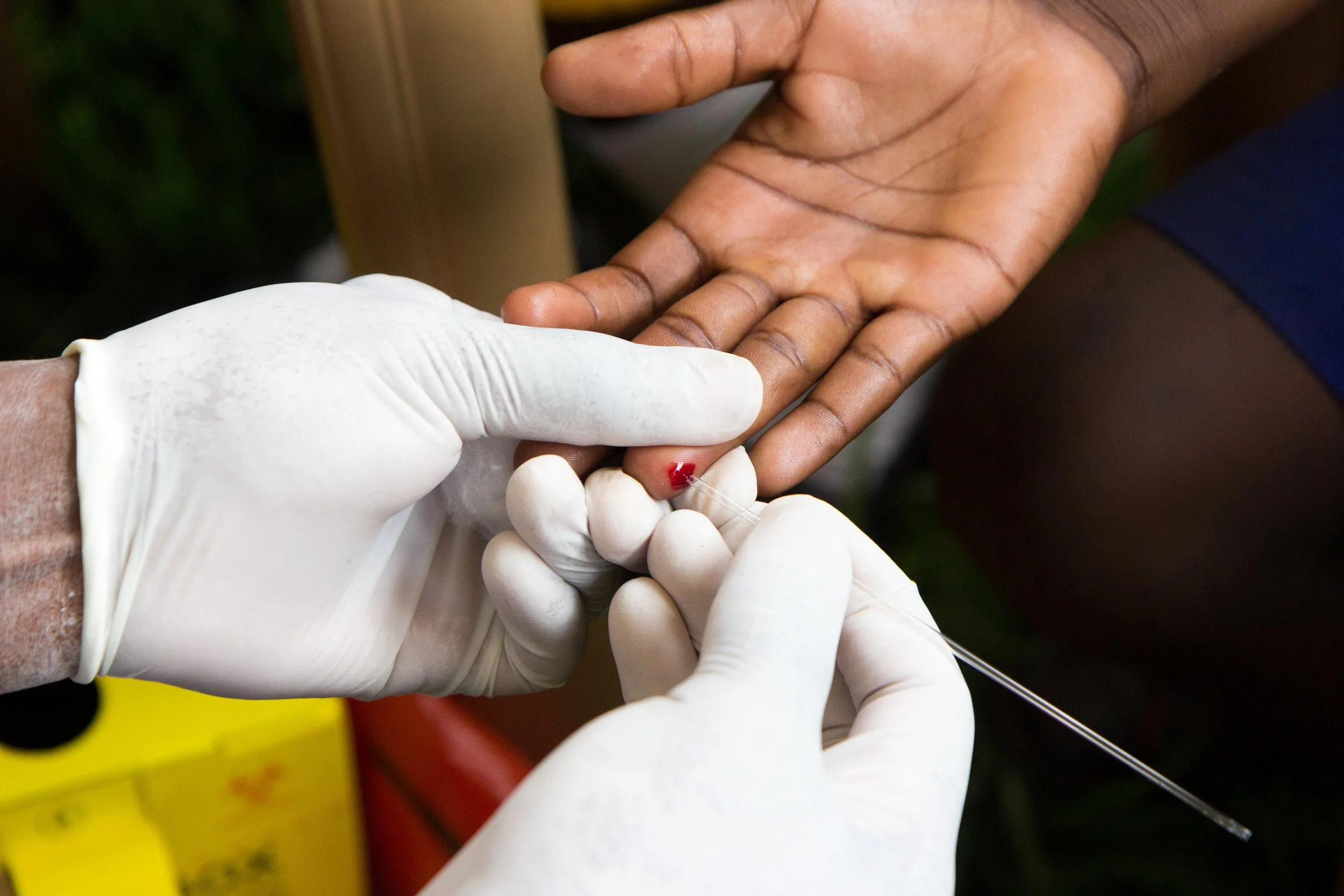Global Initiative Addresses Noncommunicable Diseases in Ghana, Kenya and Nepal
AMPATH’s partnerships in Ghana, Kenya and Nepal work in different healthcare systems, communities and environments, but all share an increasing prevalence of noncommunicable diseases (NCDs). Utilizing its unique partnership model and expertise in implementing successful NCD programs, AMPATH Global is launching a coordinated multi-country initiative led by Indiana University, supported by a three-year grant of $2.5 million by the Eli Lilly and Company Foundation to Indiana University.
The project is anticipated to reach nearly four million people with education and awareness, screen 165,000 people for noncommunicable diseases and link nearly 60,000 of those screened to care as needed. More than 1,200 healthcare workers will also receive training, and more than 120 facilities will receive equipment.
“Noncommunicable diseases, specifically hypertension and diabetes, are a growing public health crisis across the globe, and a disproportionate burden of these diseases falls on low and middle-income countries,” said Jemima Kamano, MBChB, MMed, principal investigator for the AMPATH Global NCD Initiative. “Due to limited availability of primary care services, insufficient health workforces, widespread poverty and strained public sector health systems, uncontrolled NCDs are taking a toll on the populations AMPATH partners serve,” she continued. Dr. Kamano is an endocrinologist/diabetologist at Moi Teaching and Referral Hospital and senior lecturer and researcher at Moi University School of Medicine in Kenya.
The new initiative builds upon lessons learned from the successful Primary-Health Integrated Care for Four Chronic disease (PIC4C) model in Kenya that was led by Dr. Kamano and implemented from 2019-2022 with support from Access Accelerated through the World Bank. The PIC4C program demonstrated the effectiveness of a proactive approach to NCDs.
The goals of the AMPATH Global NCD Initiative are to:
promote non-communicable chronic disease prevention, early detection, and linkage to care in underserved communities.
improve the quality of chronic disease care in the community and primary care facilities.
strengthen referral mechanisms between levels of the health system to improve the management of chronic diseases and their complications.
establish a robust monitoring and evaluation system that will allow ongoing quality checks and improvement in care delivery.
“Working with healthcare leaders from Ghana, Nepal and Kenya to implement specific NCD strategies for each location, we will share resources and knowledge, learn from each other, and develop cost-effective, high-value care models to reach a larger population,” added Dr. Kamano.
“We are incredibly fortunate that Dr. Kamano will share her extensive knowledge and experience by serving as the leader of this new multi-country initiative to combat the impact of noncommunicable diseases,” said Adrian Gardner, MD, MPH, executive director of the AMPATH Consortium. The consortium, led by Indiana University, includes 16 leading universities around the world that work in partnership with universities and public sector health systems in each location where AMPATH has a partnership. “As an academic partnership, we also benefit from the research infrastructure and innovative research minds at each of our institutions to inform, document, evaluate and share knowledge gained to impact global NCD care,” he added.
“The AMPATH Global NCD Initiative represents a holistic, community-centered, and sustainable approach to NCD care for resource limited communities in low to middle-income countries,” said Cynthia Cardona, President of the Eli Lilly and Company Foundation (Lilly Foundation). The Lilly Foundation was established in 1968, supported by donations from Eli Lilly and Company, with the aim of extending Lilly’s reach and impact in a charitable manner. Cynthia added, “This Lilly Foundation grant to Indiana University seeks to support charitable efforts to address the root causes of NCDs, empower communities, and strengthen healthcare systems in resource limited communities. The grant aims to significantly improve health outcomes and reduce the burden of NCDs in low to middle-income countries such as Kenya, Nepal, Ghana, and beyond.”
The AMPATH Global NCD Initiative will develop community-based models tailored to each country's context.
For AMPATH Kenya, the focus is on expanding a care model for diabetes and hypertension with interventions across all levels of care by leveraging existing primary healthcare structures in collaboration with county governments. Moi University and Moi Teaching and Referral Hospital lead the AMPATH partnership with Indiana University leading the AMPATH Consortium.
AMPATH Nepal partners will create and pilot a community- and group-based model for hypertension and diabetes care, strengthening existing primary healthcare structures and the country’s network of female community health volunteers. Dhulikhel Hospital and Kathmandu University School of Medical Sciences lead the partnership with the Arnhold Institute for Global Health at the Icahn School of Medicine at Mount Sinai representing the AMPATH Consortium.
AMPATH Ghana will integrate chronic disease management within the national healthcare system, particularly in the northern regions, through training programs, capacity building, increasing availability of essential medications, ensuring adequate health workforce, improving health information systems, and targeting financial risk protection. The University for Development Studies and Tamale Teaching Hospital lead the partnership with the Section for Global Health at NYU Langone Health representing the AMPATH Consortium.
The target population includes individuals and communities facing various socio-economic and geographic disparities, with limited access to healthcare services and resources. These include the semi-urban regions of Nepal, the remote rural regions of western Kenya, and underserved communities in northern Ghana. By addressing the unique needs and challenges of each location, the initiative seeks to enhance health outcomes, reduce NCD-related illnesses and deaths, and promote equitable access to quality healthcare for all.
A key component across all sites will be a pilot health communications messaging campaign to increase education and awareness about NCDs among people in these key communities. The strategies will be developed during the project planning process with input from all partners and guided by the global health communications lead, John Parrish-Sprowl, PhD, director of the Global Health Communications Center at Indiana University. The AMPATH team will adapt the WHO’s Communication for Behavioural Impact (COMBI) toolkit to implement culturally contextualized behavioral messaging strategies.
“True to AMPATH’s values, this Global NCD Initiative is designed with sustainability at its core,” added Dr. Kamano. “By building local capacities, integrating systems, and leveraging data for continuous improvement, the initiative not only ‘leads with care’ by addressing the immediate health needs related to NCDs but also establishes a robust framework for long-term health system resilience.”


